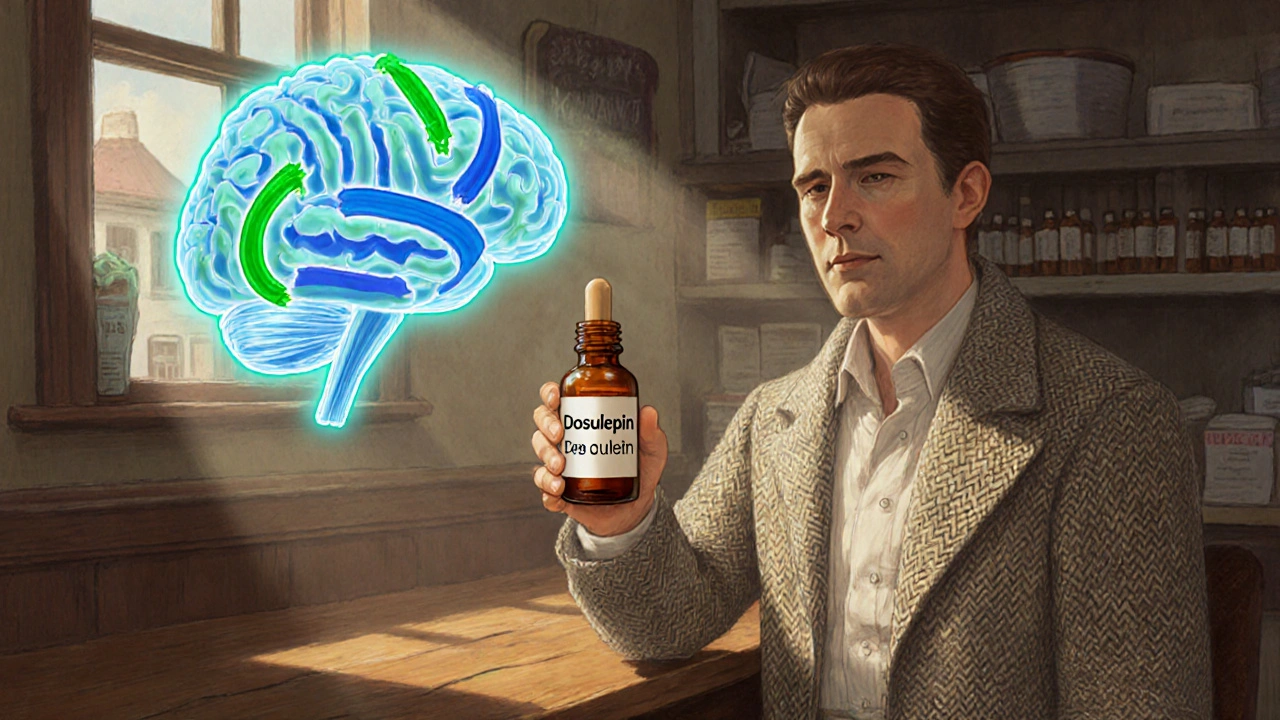Tricyclic Antidepressants: What They Are, How They Work, and What You Need to Know
When it comes to treating depression, tricyclic antidepressants, a class of prescription drugs first developed in the 1950s that work by balancing brain chemicals like serotonin and norepinephrine. Also known as TCAs, they were the go-to option before SSRIs became popular—but they’re still used today for specific cases, especially when newer drugs don’t work or when chronic pain is involved. Unlike the more common SSRIs, tricyclics affect multiple neurotransmitters at once, which can make them more powerful but also more likely to cause side effects like dry mouth, drowsiness, or dizziness.
They’re not just for depression. Doctors sometimes prescribe them for nerve pain, migraines, or even severe anxiety because of how they interact with the nervous system. Amitriptyline, one of the most widely prescribed TCAs, is often used for fibromyalgia and diabetic neuropathy. Another, Nortriptyline, is a metabolite of amitriptyline and tends to be better tolerated, especially in older adults. These aren’t quick fixes—they take weeks to show full effects, and stopping them suddenly can cause withdrawal symptoms. That’s why they’re usually started at low doses and adjusted slowly.
Why would someone choose a tricyclic over a newer antidepressant? Sometimes, it’s because other meds haven’t helped. Sometimes, it’s because the person has both depression and physical pain. And sometimes, it’s because they’re cost-effective—many TCAs are available as cheap generics. But they’re not for everyone. People with heart conditions, glaucoma, or a history of seizures need to be careful. And while they’re not addictive, they can be dangerous in overdose, which is why doctors monitor usage closely.
The posts you’ll find here aren’t just about the drugs themselves. They cover real-world experiences—how people manage side effects, how TCAs compare to other antidepressants like Celexa or Wellbutrin, and what to watch for when switching medications. You’ll also find advice on combining them with supplements like acetyl-L-carnitine or vitamin B6, which some people use to support mood. There’s no one-size-fits-all answer with these meds, but the information here is grounded in what’s actually working for people right now.

Dosulepin vs Other Antidepressants: Benefits and Side Effects Compared
A clear, side‑by‑side look at dosulepin versus other antidepressants, covering benefits, risks, dosing and practical tips for choosing the right medication.
Read more